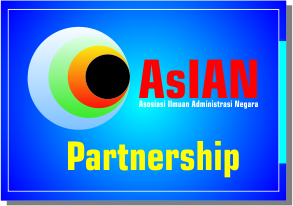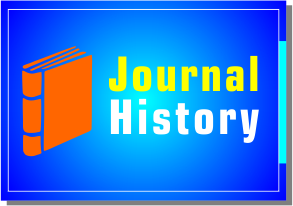Anteseden Kepercayaan dan Implikasinya terhadap Perilaku Tenaga Profesional pada Wakaf Tunai
DOI:
https://doi.org/10.31334/transparansi.v2i2.621Keywords:
Trust, intention, wakaf tunaiAbstract
The development of cash waqf in Indonesia is less encouraging, although cash waqf has entered into law since 15 years ago. Starting from this background, this research intends to investigate the public's desire, in this case professional groups, to make cash endowments. This research assumes that the desire to represent cash is due to the trustworthiness of nazhir. This study examines antecedents that cause public trust in cash waqf, so they wish to do cash waqf. The results of the study indicate that all hypotheses are proven to have a positive effect, except situational normality which has a negative effect on trust of services.References
Ahmed, U.; Mohammed, M.O.; Faosiy, O.A.; Daud, N.M. (2016), Investigating the influence of public trust on the revival of waqf institution in Uganda. Middle-East Journal of Scientific Research, 23 (6), 1165-1172.
Atabik, A. (2014). Manajemen pengelolaan wakaf tunai di Indonesia. Working paper, dapat diunduh pada http://journal.stainkudus.ac.id/index.php/Ziswaf/article/view/1527.
Atan, N.A.; Johari, F. (2017). A review on literature on literature of waqf for poverty alleviation between 2006-2016. Library Philosophy and Practice (e-journal), 1486.
Cooper, D.R.; & Schindler, P.M. (2014). Business Research Methods. Twelfth edition. New York: McGraw-Hill
Fahham. A.M. (2015). Pengelolaan wakaf tunai di lembaga pengelola wakaf dan pertanahan pengurus wilayah Nahdlatul Utama Daerah Istimewa Yogyakarta. Aspirasi, 6(1), 27- 36.
Fauzi, M.H.B.; Yahya, S.; Hanaysha, J.R.; Haron, M.S.; & Zahrin, S.N.A. (2019). The impact of trust in cash waqf contribution: a case study of study of wakaf Selangor Mualamat (WSM) service of Bank Mualamat Malaysia Berhad (BMMB). International Journal of Business, Economics and Law, 18(2), 1-11.
Grimmelikhuijsen, S.G.(2014). The effects of transparency on the perceived trustwoerthniness of a government organization: eviedence from on online experiment. Journal of public administration Theory and Research 24(1), 137-157.
Hair, J.H.; & Hult, G.T.M.; Ringle, C.M.; Sarsdtedt, M. (2014). A Premier Partial Least Squares Structural Equation Modeling (PLS-SEM). Thousand Oaks: SAGE Publication.
Haron, M.; Komarudin, M.K; Fauzi, N.A.M.; Ariff, M.M.; & Zainuddin, M.Z. (2016). Cash waqf collection: Any potential factors to influence it? International Journal of Business, Economics and Law, 9(2), 27- 33.
Hasan, R.; Siraj, S.A.; Mohammad, M.H.S. (2017). Antecedents and Outcome of Waqif’s in Waqf Institution. Journal of Economic Cooperation and Development, 38(4), 155-180.
Hasan, R.; Siraj, S.A. (2017). Toward developing a model of stakeholder trust in waqf institutions. Islamic Economic Studies, 25, 85-100.
Jamila, K.R.; Alhabshi, S.M. (2019). Waqf financial reporting and transparency: case of ar-Raudhatul Hasanah Islamic Boarding School. Working paper, dapat diunduh pada http://jurnal.uinsu.ac.id/index.php/JAKS/article/view/4172.
Osman, A.F.; Mohammed, M.O.; Fadzil, A. (2015). Factor influencing cash waqf giving behavior: a revised theory of planned behavior, 33- 48. Dapat diunduh pada http://gbse.com.my/JurnalMs33-48Amirul.pdf.
Riana, D. (2012). Statistika Deskriptif itu Mudah. Tangerang Selatan: Jelajah Nusa
Ricket, J.M.; (2016). The relationship between transparency, consumer trust and willingness to share data: A vignette survey. 7th IBA Bachelor Thesis Conference, July 1st, 2016, Enschede, The Netherlands.Dapat diunduh pada https://pdfs.semanticscholar.org/497c/3e5716e92e58a98509d01e4e6d1b6afa57a3.pdf.
Saiti, B. (2017). The role of the waqf and trust commission (WTC) in Zanzibar: problems and prospects.Working Paper pada https://www.researchgate.net/publication/314964823_The_Role_of_the_Waqf_and_Trust_Commission_WTC_in_Zanzibar_Problems_and_Prospects.
Sanusi, S. (2015). Tha Management of Cash Waqf: Toward Socio-Economic Development of Muslims in Malaysia. Jurnal Pewngurusan, 43, 3-12.
Suganda, A.D. (2014). Konsep Wakaf Tunai. Islamiconomic, Jurnal Ekonomi Islam, 5 (2), 1-15.
Syauqi, M.A. (2014). Optimalisasi pengelolaan wakaf uang untuk kesejahteraan umum. Kanun Jurnal Ilmu Hukum, 63(16), 369-383.
Tho’in, M.; & Prastiwi, I.E.(2015). Wkaf Tunai Perspektif Syariah. Jurnal Ilmiah Ekonomi Islam, 01(01), 61- 74.
Wang, S.W.; Ngamsiriuom, W.; & Hsieh, C.H. (2015). Trust disposition, trust antecedents, trust, and behavioral intention. The Service Industries Journal, 35(10), 555-572.
Yaacob, H.; & Nahar, H.S. (2017). Investigating awqaf management, accounting, and investment practices in Malaysia: the cas of state religious institution. GJT, 7(1), 60-70.
Yunanda, R.A.; Shafii, Z.; tareq, M.A. (2016). Accountability of Islamic Based Non-Profit Sector: The Case of Waqf Organizations. Jurnal Ekonomi dan Bisnis Islam, 2(2), 105- 124.
Downloads
Published
Issue
Section
License

This work is licensed under a Creative Commons Attribution-ShareAlike 4.0 International License
Please find the rights and licenses in Transparansi : Jurnal Ilmiah Ilmu Administrasi By submitting the article/manuscript of the article, the author(s) agree with this policy. No specific document sign-off is required.
- License
The commercial use of the article will be governed by the Creative Commons Attribution license as currently displayed on Creative Commons Attribution-ShareAlike 4.0 International License.
2. Author(s)' Warranties
The author warrants that the article is original, written by stated author(s), has not been published before, contains no unlawful statements, does not infringe the rights of others, is subject to copyright that is vested exclusively in the author and free of any third party rights, and that any necessary written permissions to quote from other sources have been obtained by the author(s).
3. User Rights
Transparansi : Jurnal Ilmiah Ilmu Administrasi spirit is to disseminate articles published are as free as possible. Under the Creative Commons license, Transparansi : Jurnal Ilmiah Ilmu Administrasi permits users to copy, distribute, display, and perform the work for non-commercial purposes only. Users will also need to attribute authors and Transparansi : Jurnal Ilmiah Ilmu Administrasi on distributing works in the journal and other media of publications.
4. Co-Authorship
If the article was jointly prepared by more than one author, any authors submitting the manuscript warrants that he/she has been authorized by all co-authors to be agreed on this copyright and license notice (agreement) on their behalf, and agrees to inform his/her co-authors of the terms of this policy. Transparansi : Jurnal Ilmiah Ilmu Administrasi will not be held liable for anything that may arise due to the author(s) internal dispute. Transparansi : Jurnal Ilmiah Ilmu Administrasi will only communicate with the corresponding author.
5. Miscellaneous
Transparansi : Jurnal Ilmiah Ilmu Administrasi will publish the article (or have it published) in the journal if the article’s editorial process is successfully completed. Transparansi : Jurnal Ilmiah Ilmu Administrasi editors may modify the article to a style of punctuation, spelling, capitalization, referencing and usage that deems appropriate. The author acknowledges that the article may be published so that it will be publicly accessible and such access will be free of charge for the readers as mentioned in point 3.
Every accepted manuscript should be accompanied by "Copyright Transfer Agreement"prior to the article publication.











